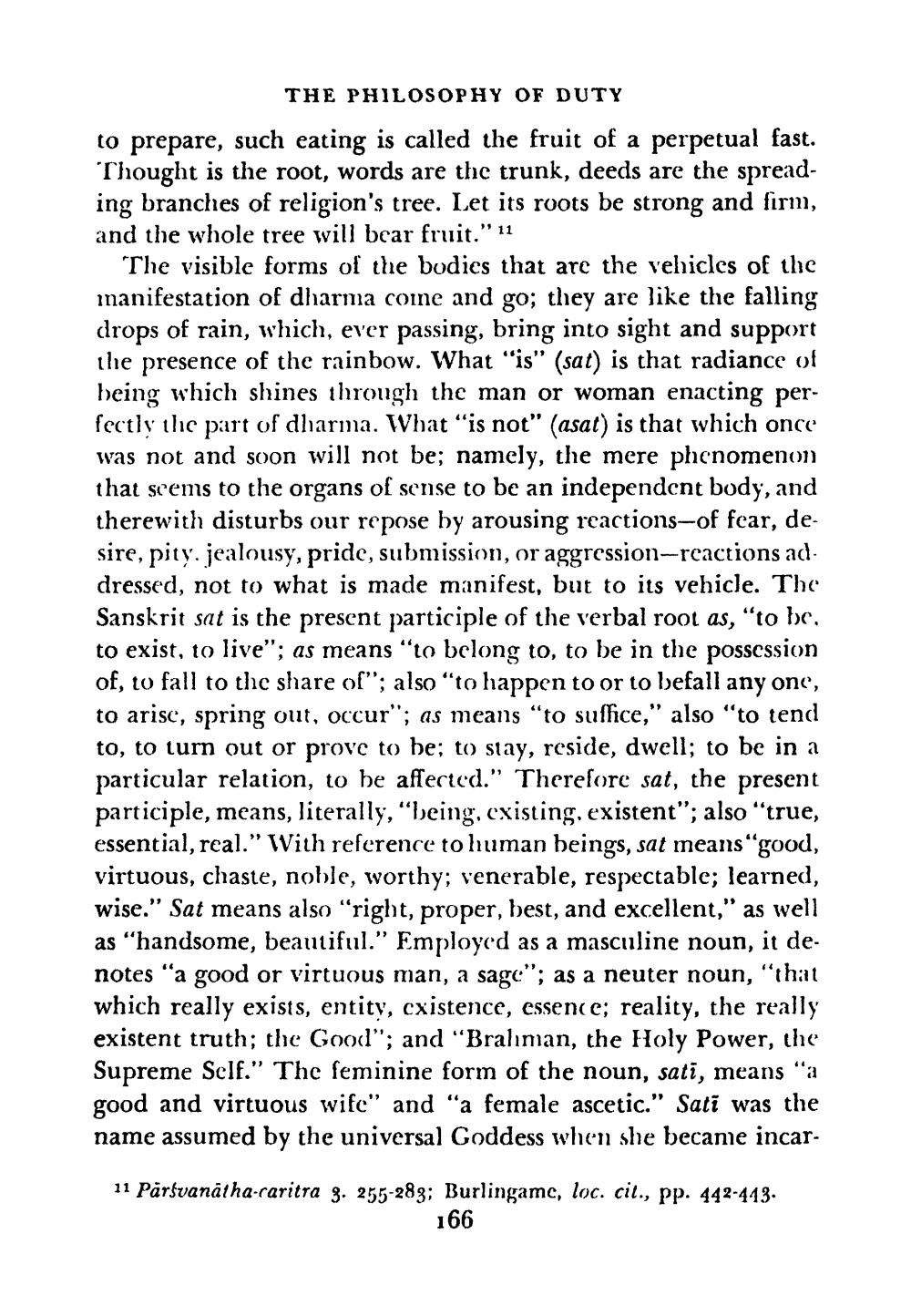________________
THE PHILOSOPHY OF DUTY
to prepare, such eating is called the fruit of a perpetual fast. Thought is the root, words are the trunk, deeds are the spreading branches of religion's tree. Let its roots be strong and firm, and the whole tree will bear fruit." 11
The visible forms of the bodies that are the vehicles of the manifestation of dharma come and go; they are like the falling drops of rain, which, ever passing, bring into sight and support the presence of the rainbow. What "is" (sat) is that radiance of being which shines through the man or woman enacting perfectly the part of dharma. What "is not" (asat) is that which once was not and soon will not be; namely, the mere phenomenon that seems to the organs of sense to be an independent body, and therewith disturbs our repose by arousing reactions-of fear, desire, pity. jealousy, pride, submission, or aggression-reactions addressed, not to what is made manifest, but to its vehicle. The Sanskrit sat is the present participle of the verbal root as, “to be. to exist, to live"; as means "to belong to, to be in the possession of, to fall to the share of"; also "to happen to or to befall any one, to arise, spring out, occur"; as means "to suffice," also "to tend to, to turn out or prove to be; to stay, reside, dwell; to be in a particular relation, to be affected." Therefore sat, the present participle, means, literally, "being, existing, existent"; also "true, essential, real." With reference to human beings, sat means "good, virtuous, chaste, noble, worthy; venerable, respectable; learned, wise." Sat means also "right, proper, best, and excellent," as well as "handsome, beautiful." Employed as a masculine noun, it denotes "a good or virtuous man, a sage"; as a neuter noun, "that which really exists, entity, cxistence, essence; reality, the really existent truth; the Good"; and "Brahiman, the Holy Power, the Supreme Self." The feminine form of the noun, sati, means "a good and virtuous wife" and "a female ascetic." Sati was the name assumed by the universal Goddess when she became incar
11 Pārsvanatha-caritra 3. 255-283; Burlingame, loc. cit., pp. 442-443166




